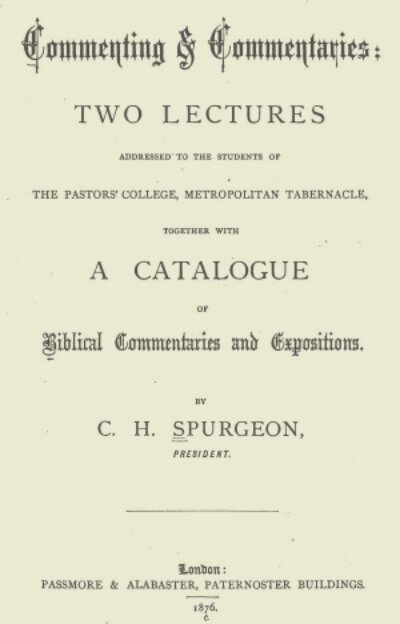Receive our blog posts in your email by filling out the form at the bottom of this page.
Study to shew thyself approved unto God, a workman that needeth not to be ashamed, rightly dividing the word of truth (2 Timothy 2:15).
An interesting gem to be found in a posthumously-published commentary on the Book of Hebrews by Francis S. Sampson (edited by Robert L. Dabney) is the introductory essay on the critical interpreter of the sacred Scriptures. Sampson served as a professor of Oriental literature and languages in the Union Theological Seminary, Virginia, and was a colleague and dear friend of Dabney, who was also his biographer.
Sampson highlights the importance of the faithful interpreter of Scripture in the context of the Satan’s war against Christ and His Church. He argues that one of greatest means by which the devil causes harm to the Church is through the efforts of unfaithful theological professors and preachers who undermine the foundations of the Church. By the mangling and perversion of God’s Word, such sabotage from within greatly aids his efforts, by suppressing and distorting the truth, to derail the advancement of Christ’s kingdom. But to the contrary, faithful interpreters of Scripture who handle God’s Word with wisdom are indispensable instruments in the work of the Church to advance the cause of the gospel in the world.
Here is a brief summary of the qualifications which Sampson gives for the faithful interpreter of Scripture:
The first qualification which I shall mention is, that he have a thorough conviction that the Scriptures are indeed the Word of God: in other words, that he be a firm believers in the plenary inspiration of the Sacred Scriptures.
The next essential qualification for the sacred Scriptures which I shall mention is, that he be truly enlightened and regenerated by the Spirit which gave them.
The third qualification, which I mention as essential to the critical interpreter of the Scriptures, is a thorough knowledge of the original languages in which they are written, as well as a good knowledge, at least, of their cognates.
But not only is a thorough knowledge of the original and cognate languages of the Scriptures necessary to the interpreter; he has need, in the fourth place, of a very extensive and often minute acquaintance with various collateral knowledge.
The next requisite to the interpreter of the sacred Scriptures which I shall mention is, a thorough and comprehensive acquaintance with the Scriptures themselves.
The last qualification of the interpreter of the sacred Scriptures which I shall mention, is, that he possess correct principles of interpretation, and have the skill and judgment to apply them.
In the last discussion, Sampson highlights the importance of the principle of “historico-grammatical system of interpretation.” He adds: “In this last qualification, we only allow what, in strict accordance with the true nature of language, is allowed to all writings, — that they be interpreted according to themselves and according to the nature of the subjects of which they treat.”
The full essay explores the the value of each of these criteria for sound interpretation of what the Scriptures teach. It is remarkable that, though each point is so fundamental and basic as to seemingly go without saying, yet, departures from each of these points are widespread in the Church today with consequent harmful effects.
Read the full essay at Sampson’s page or Dabney’s and consider the importance of faithful teachers of God’s Word. Such men who meet those qualifications are treasures worthy of the great honor to handle the Word of God rightly.








